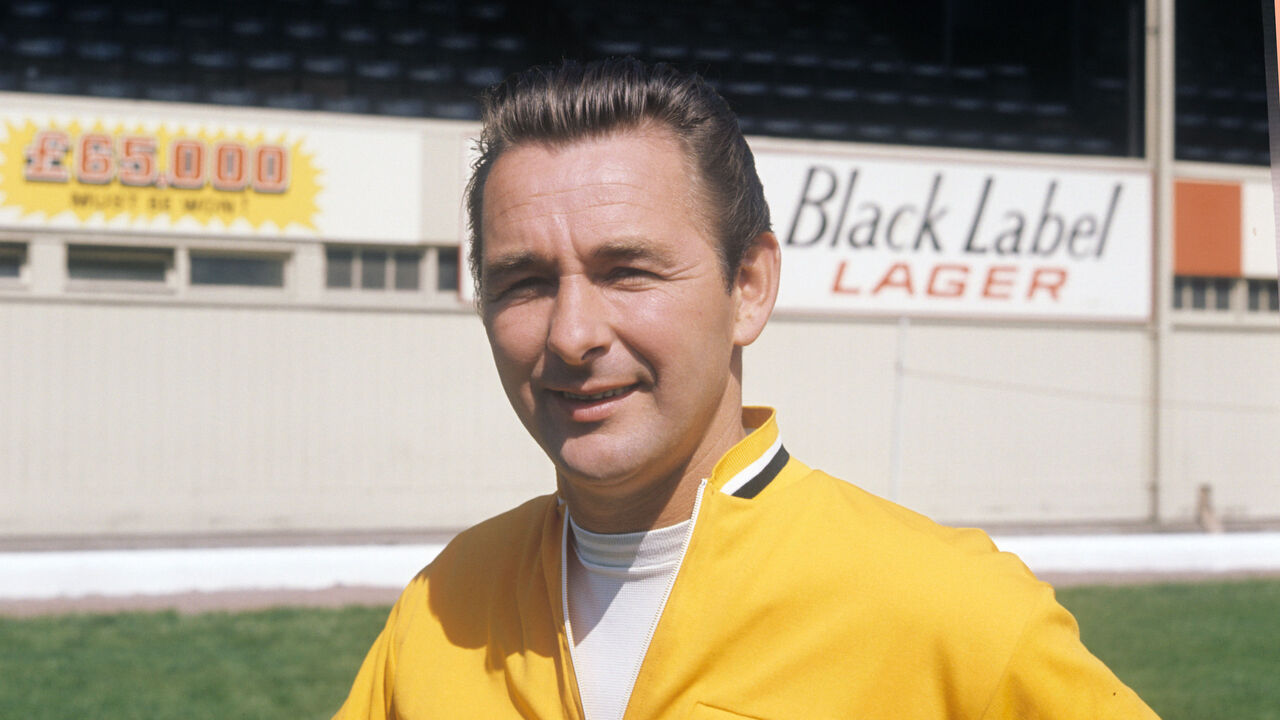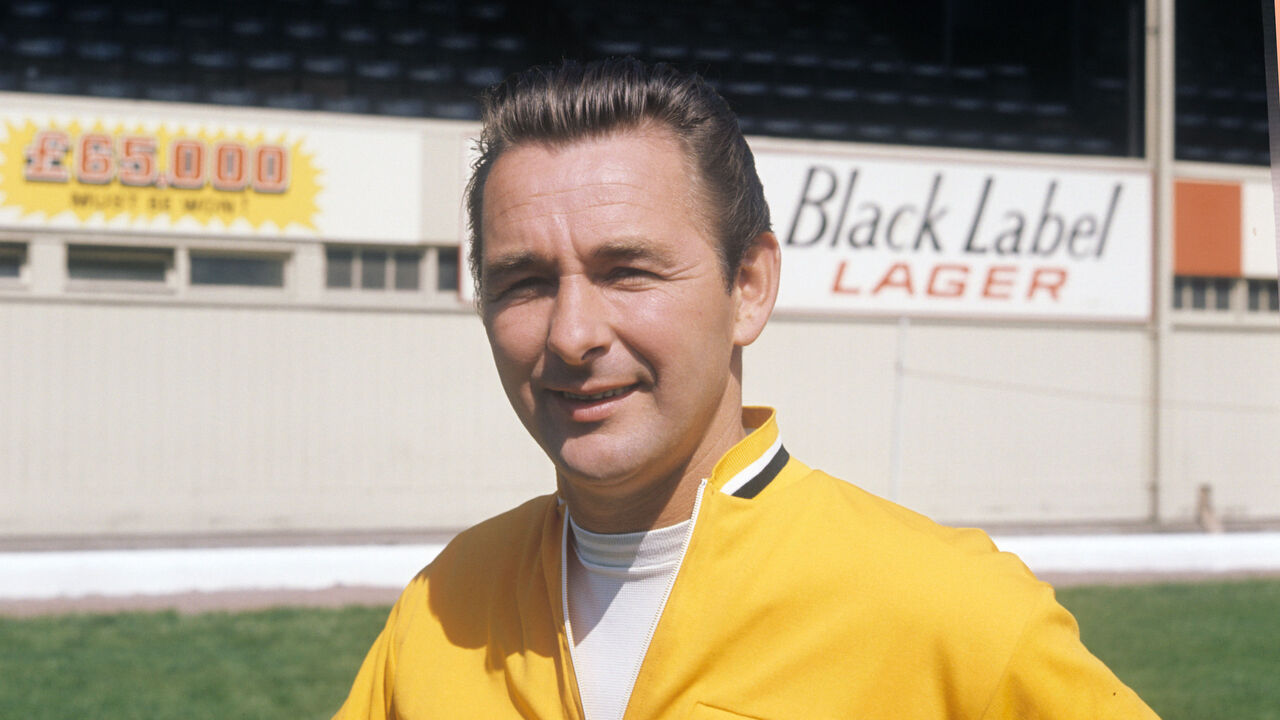Best title race ever? 1972's epic 4-way battle may never be topped
Find the biggest stories from across the soccer world by visiting our Top Soccer News section and subscribing to push notifications.
Every coach leading the current crop of Premier League contenders has complained about the schedule at some point. It’s become part of the game. So imagine the uproar if any of them had to watch their rivals from afar with the season still on the line because of a quirk in the fixture list.
Most Derby County players, and the coach, weren’t in the country when they were crowned champions of England more than half a century ago.
Brian Clough didn’t even get to experience the final day of the 1971-72 season with his squad, most of whom were vacationing in Spain. The revered late manager was on holiday in the Isles of Scilly with family when the Rams clinched their first triumph in the old First Division after a mighty struggle at the top of the table, with only a single point separating Derby from Leeds United, Liverpool, and Manchester City.
“I don’t believe in miracles, but one’s occurred tonight,” Clough said shortly after etching his name history.
Fast forward 52 years, and the Premier League is barrelling toward another blockbuster climax featuring a rare three-way struggle for the title. Whether it can live up to the epic 1972 tussle remains to be seen.
Two teams duking it out for glory has been the standard for much of the Premier League era. From Manchester United and Arsenal dueling for supremacy in the first decade to Chelsea challenging for silverware in the new millennium, there was no shortage of dramatic duels before Manchester City and Liverpool’s rivalry blossomed and began dominating the landscape.
Three teams grappling this late in the season is rare, but not unheard of. There was a trio in the hunt in 2010 before eventual champions Chelsea won their final three games by a combined score of 17-0 to maintain their one-point advantage over Manchester United (Arsenal’s bid ended in April that year courtesy of back-to-back losses to Tottenham Hotspur and Wigan). The current campaign is similar, featuring a trio of England’s best and richest teams – Manchester City, Arsenal, and Liverpool – engaged in a tight battle.
All signs point toward a captivating conclusion, with twists and pivotal moments that will decide the Premier League yet to be told – just look at this past weekend for proof. But matching the spectacle that was the 1972 title race – and Derby’s eventual triumph – is unlikely. Especially now, considering that Arsenal, Liverpool, or City won’t play each other in the league again.

By March 1972, there was a clear four-way battle at the top of the table that would persist until Matchday 42, the final round of the season. The route there was circuitous.
Manchester City were in first place on March 18 after building a healthy five-point cushion. It evaporated quickly. Derby overtook them two weeks later on the heels of City’s costly three-game winless streak.
Manchester City did get the better of Derby in their last direct meeting, beating Clough’s side on April 22 to move back into first place. However, the victory was City’s last game of the campaign. Liverpool and Derby sat one point behind them with games still to play, and Leeds were two points back with two games left. City, the 1968 champions, could only watch on from there, hoping for help from other teams. It never came.
Derby, after enduring their own surprising setbacks along the way, managed to finish on a winning note and simultaneously deliver a blow to their rivals, beating Liverpool 1-0 on May 1 in their last game to move into first place.
Celebrations were muted, though. They didn’t control their own destiny. After much flip-flopping at the top, idle Derby could do no more. The destination of the title now depended on Leeds and Liverpool.
Due to fixture congestion earlier in the year, Leeds and Liverpool were scheduled to play a week after Clough officially ended his second season in charge of Derby. Both also had the advantage if they finished level on points with Derby, as they each had a superior goal average – the tiebreaker used before it was scrapped in 1977.
“We felt, underneath, that one of those clubs would do it, and therefore, we wouldn’t be champions,” former Derby captain Roy McFarland told the BBC in 2022.
Standings going into final day of 1971-72 season:
| P | W | D | L | F | A | Pts | |
|---|---|---|---|---|---|---|---|
| Derby | 42 | 24 | 10 | 8 | 69 | 33 | 58 |
| Leeds | 41 | 24 | 9 | 8 | 72 | 29 | 57 |
| Man City | 42 | 23 | 11 | 8 | 77 | 45 | 57 |
| Liverpool | 41 | 24 | 8 | 9 | 64 | 30 | 56 |
To win the league, Leeds simply required a point at Wolves, while Liverpool needed a win – worth two points in those days – and a Leeds loss to finish atop the pile. The two championship-deciding games were set for May 8.
Liverpool were taking on Arsenal at Highbury in a game loaded with action. The Reds scored what they thought was a late winner, seemingly breaking a 0-0 deadlock with two minutes remaining, but John Toshack’s close-range finish was ruled offside, and the match ended goalless. The decision sparked a furious reaction from legendary Liverpool boss Bill Shankly, who said his men were robbed of the championship by a “diabolical decision.”
Meanwhile, Leeds’ iconic gaffer Don Revie thought an attacking brand of football would do the trick and seal the club’s second top-flight title since 1969. Instead, Leeds were down 2-0 after 67 minutes. They pulled one back, but it was too little, too late, and their hopes ended with a 2-1 defeat to ninth-place Wolves.
“I think they played four-and-a-half minutes injury time (in Leeds’ game) and it seemed like four-and-a-half years,” Clough said.
After dramatic finishes at Highbury and Molineux, it was finally safe for Derby County to celebrate.
McFarland and Derby defender Colin Todd celebrated together after being called back to England to represent the national team. “We were just elated, jumping up and down and shouting, making as much noise as we could to get the people coming out of their houses.”
There isn’t an underdog quite like Derby in this season’s fight for England’s top prize. Instead, arguably the wealthiest team in the world – coming off an historic treble-winning season – is going up against two of the most recognizable clubs in football.
But that doesn’t mean we can’t still get excited about what’s to come in an unpredictable title race that’s hopefully still full of plot twists. You can be sure that this season’s champions won’t be out of the country on holiday when the trophy is awarded on May 19.


